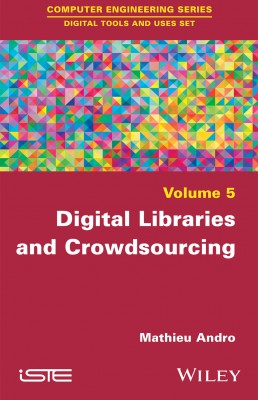Previously, libraries already outsourced some tasks. Now, however, they can also appeal to crowds of Internet users, with whom the libraries can have a more collaborative relationship than before. These Internet users may be volunteers or paid workers, and they could be working consciously, unconsciously or in the form of games. With their help, libraries could be provided with the workforce, skills, knowledge and financial resources that they need in order to achieve unimaginable goals.
Digital Libraries and Crowdsourcing explores the consequences of this new model for libraries and presents an overview of the projects, particularly in the fields of on-demand digitization and the participatory correction of Optical Character Recognition (OCR). The author also provides a state of the art on types of projects, communication, recruitment, motivations of Internet users, sociology of contributors, quality of work, evaluation of projects and conduct of change.
http://www.iste.co.uk/book.php?id=1285
